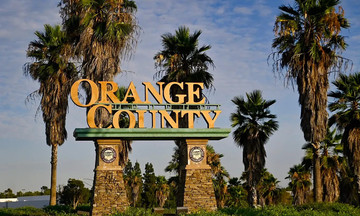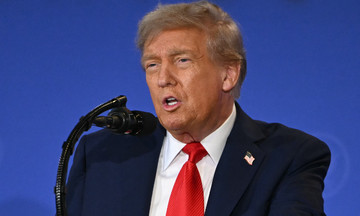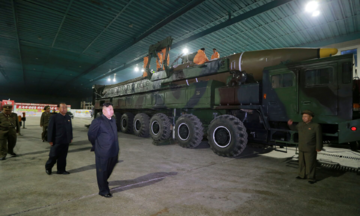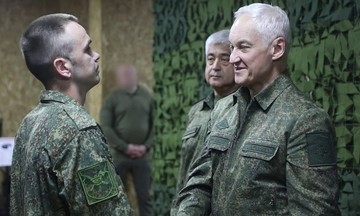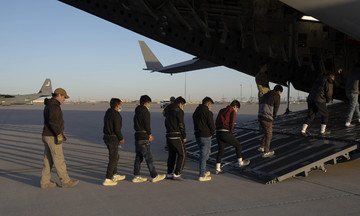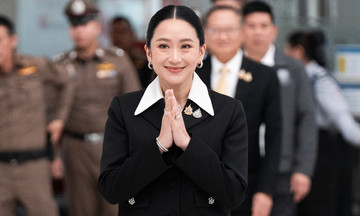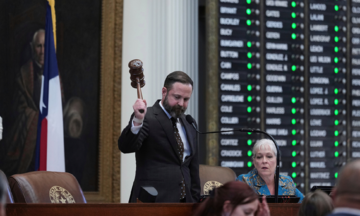At a recent Washington seminar commemorating the 30th anniversary of US-Vietnam normalization, former US ambassador to Vietnam, Daniel Kritenbrink, emphasized the role of humanitarian efforts in building goodwill between the two nations, according to Vietnam News Agency (TTXVN). "With the support of Senator Patrick Leahy and many other members of Congress, the US invested a significant budget to address the consequences of Agent Orange, clear unexploded ordnance, and provide treatment for people with disabilities living in the 7-8 most heavily affected provinces," Kritenbrink said.
These humanitarian activities, according to Kritenbrink, served as a bridge, fostering goodwill and paving the way for normalization. "In my view, this changed Vietnamese attitudes towards the US. It also helped the two sides begin a dialogue, and I believe these efforts remain incredibly important today," said Kritenbrink, who served as ambassador from 2017 to 2021.
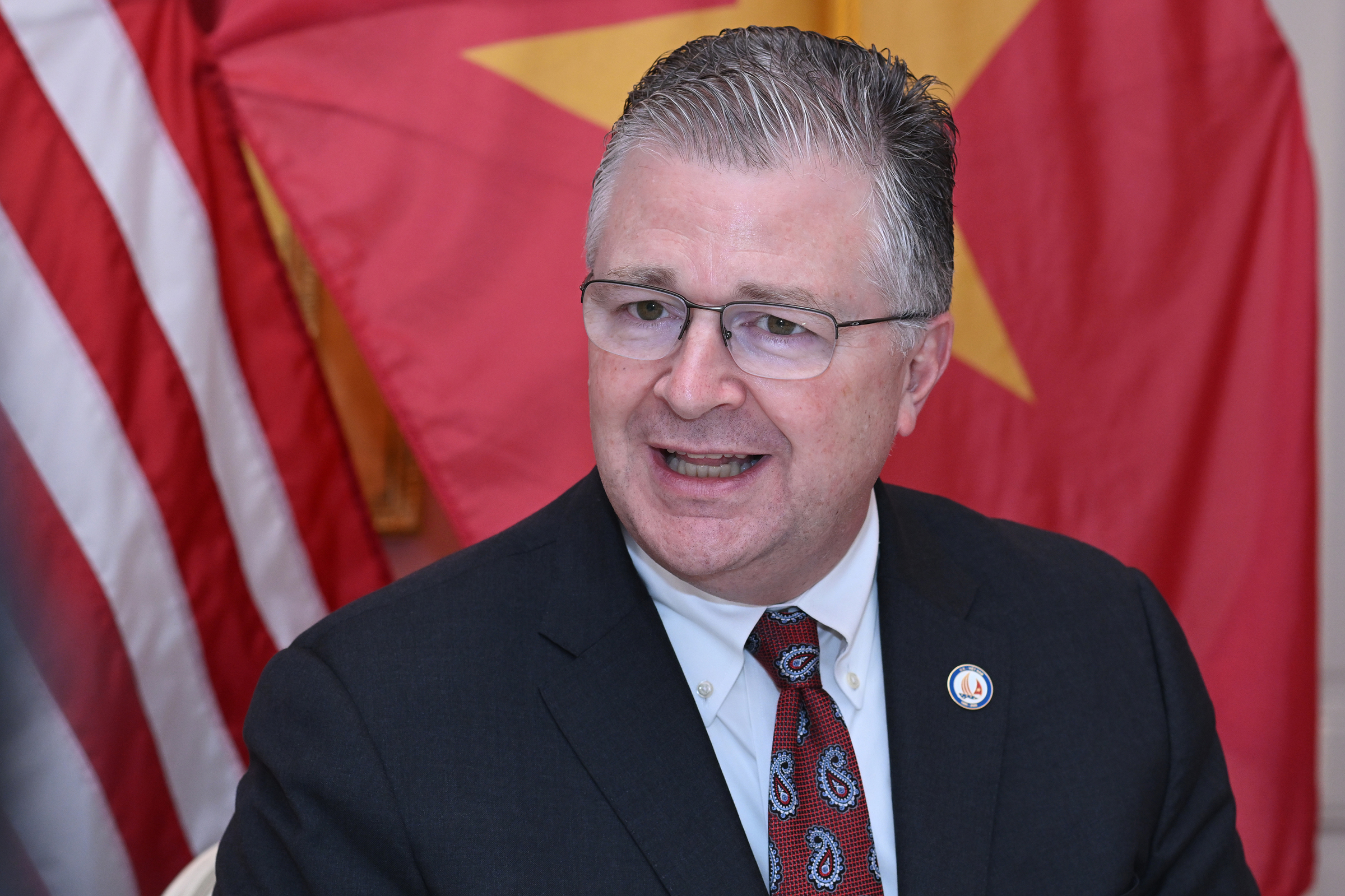 |
Daniel Kritenbrink, who served as US ambassador to Vietnam from 2017 to 2021. Photo: Giang Huy |
Daniel Kritenbrink, who served as US ambassador to Vietnam from 2017 to 2021. Photo: Giang Huy
Addressing bilateral cooperation in the search for missing soldiers, Kritenbrink noted that while the focus had primarily been on locating missing American service members, recent efforts have expanded to include Vietnamese missing in action. He expressed earlier concerns about the reported suspension of funding from the United States Agency for International Development (USAID) for humanitarian programs. However, he confirmed that funding has been reinstated, demonstrating the recognized importance of these programs by both the international community and the US government.
Two other former US ambassadors to Vietnam, Michael Michalak and Ted Osius, also participated in the seminar. Michalak, who served from 2007 to 2011, focused on education during his tenure. Before his arrival in Vietnam, his goal was to double the number of Vietnamese students studying in the US. By the time he left, the number had tripled, and it has continued to rise. Vietnam is now the largest source of students from ASEAN and the fifth largest globally.
Michalak noted that 40 professors from 21 US universities recently visited Vietnam as part of an international academic partnership, discussing strategies to attract more Vietnamese students. "Every university president who has visited Vietnam told me, and I'm sure they told all the other ambassadors: 'Send us more students'," Michalak said.
He considers science, technology, and innovation key areas for US-Vietnam cooperation within their Comprehensive Strategic Partnership.
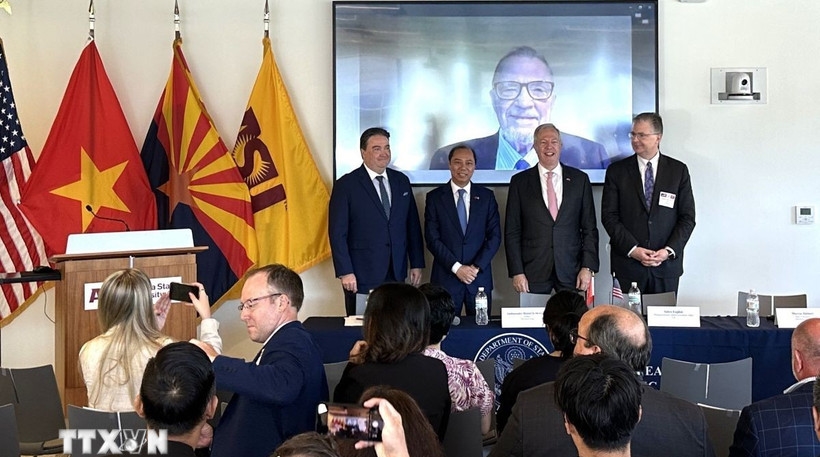 |
Vietnamese Ambassador to the US, Nguyen Quoc Dung (second from left), and former US ambassadors to Vietnam. Photo: TTXVN |
Vietnamese Ambassador to the US, Nguyen Quoc Dung (second from left), and former US ambassadors to Vietnam. Photo: TTXVN
Ted Osius, ambassador from 2014 to 2017, discussed trade, highlighting Vietnam's decision nearly 40 years ago to integrate into the global economy through its Doi Moi reforms in 1986. He described the US decision in the mid-1990s to negotiate a bilateral trade agreement with Vietnam as another crucial step, facilitating Vietnam's entry into the World Trade Organization (WTO). The agreement's provisions were designed to streamline Vietnam's WTO accession.
According to Osius, the normalization of relations in 1995, followed by the 2002 trade agreement and Vietnam's subsequent WTO membership, laid the foundation for Vietnam's economic growth. He noted that bilateral trade, which was a few hundred million USD in 1996 when he first arrived in Vietnam, reached approximately 132 billion USD in 2024, demonstrating remarkable growth. Vietnam has risen from a minor trading partner to become the US's eighth largest.
Ngoc Anh



